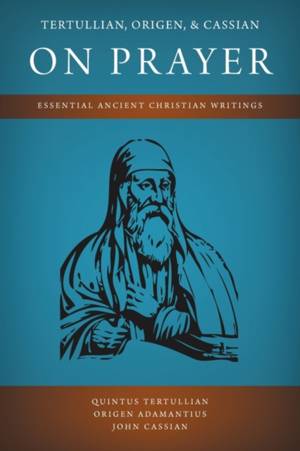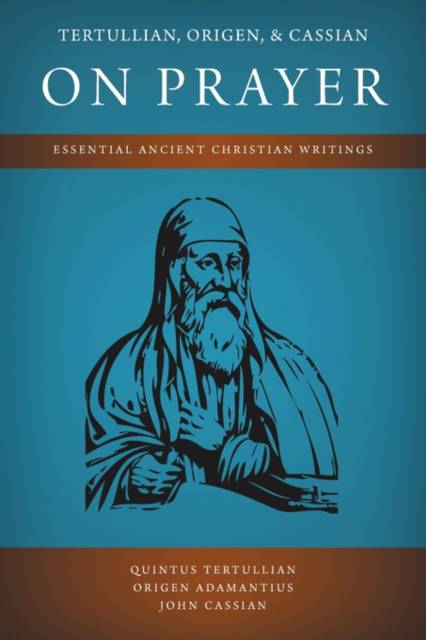
- Afhalen na 1 uur in een winkel met voorraad
- Gratis thuislevering in België vanaf € 30
- Ruim aanbod met 7 miljoen producten
- Afhalen na 1 uur in een winkel met voorraad
- Gratis thuislevering in België vanaf € 30
- Ruim aanbod met 7 miljoen producten
Zoeken
Tertullian, Origen, and Cassian on Prayer
Essential Ancient Christian Writings
Quintus Tertullian, Origen Adamantius, John Cassian
Paperback | Engels
€ 19,45
+ 38 punten
Omschrijving
Quintus Tertullian (c. 160-c. 220) is distinguished by being the first major Christian thinker to write in the Latin language. According to Eusebius, he was raised in Carthage, the son of a Roman centurion. Following his conversion to the faith, he became an impassioned defender of the rights of Christians. Origen Adamantius (c. 185-254) taught in Alexandria, reviving the catechetical school of Alexandria in which Clement of Alexandria had taught. His translations, commentaries, and theological works mark him as one of the finest minds of early Christianity. John Cassian (c. 360-435), born in Europe, first joined a monastery in Palestine and then traveled to Egypt to learn from the Desert Fathers. After his return to Europe, he founded a monastery in southern France. His writings would eventually influence St. Benedict, who recommended Cassian's texts to his monks. All three writers in this collection offer reflections on the Lord's Prayer, together with practical advice for prayer. This common ground provides a basis for comparisons, along with a rich picture of Christian spirituality in the ancient world. At the same time, the authors address questions about prayer that are still relevant today.
Specificaties
Betrokkenen
- Auteur(s):
- Uitgeverij:
Inhoud
- Aantal bladzijden:
- 178
- Taal:
- Engels
Eigenschappen
- Productcode (EAN):
- 9781926777269
- Verschijningsdatum:
- 17/12/2010
- Uitvoering:
- Paperback
- Formaat:
- Trade paperback (VS)
- Afmetingen:
- 152 mm x 229 mm
- Gewicht:
- 244 g

Alleen bij Standaard Boekhandel
+ 38 punten op je klantenkaart van Standaard Boekhandel
Beoordelingen
We publiceren alleen reviews die voldoen aan de voorwaarden voor reviews. Bekijk onze voorwaarden voor reviews.







